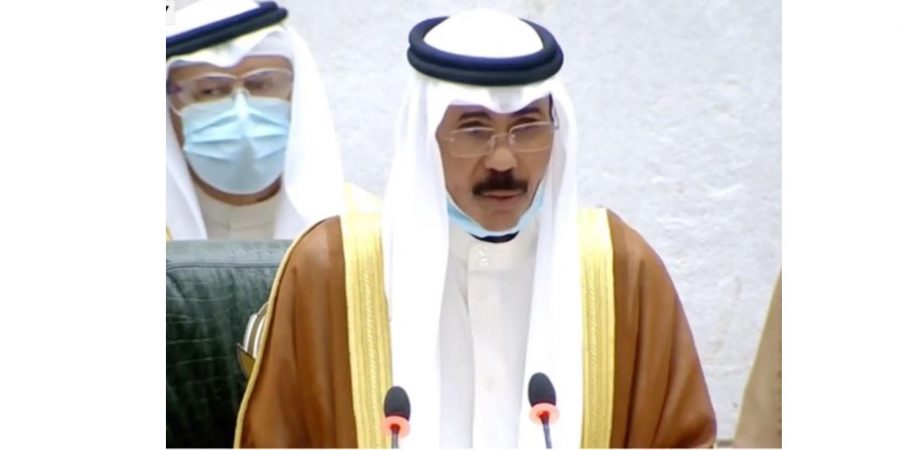Kuwait swears in new emir after Sheikh Sabah’s death

Kuwait has sworn in its new emir, Sheikh Nawaf al-Ahmad al-Sabah, to receive the body of his half-brother, the late ruler Sheikh Sabah al-Ahmad al-Jaber al-Sabah who died in the United States at the age of 91.
The body of Sheikh Sabah, an acclaimed diplomat and mediator who ruled for 14 years, is expected to arrive in Kuwait City later on Wednesday. He died on Tuesday in Minnesota where he had been undergoing treatment in hospital since July.
According to the royal court, the funeral will be “restricted to the emir’s relatives” – a move likely designed to avoid large crowds amid the coronavirus pandemic.
Kuwait’s new leader, 83-year-old Crown Prince Sheikh Nawaf, was sworn in at about 08:00 GMT during a session of the National Assembly. The Gulf state has already begun a 40-day period of national mourning.
Sheikh Sabah earned a reputation as a remarkable leader who helped steer his country through the 1990 Iraqi invasion, crashes in global oil markets and upheavals in parliament and on the streets.
World leaders and Kuwaitis alike have hailed the legacy of the late emir, architect of the nation’s modern foreign policy and mediator in some of the worst crises to grip the Gulf.
“This man was the safety valve of the Arab world, not just for Kuwait,” Bandar al-Dahani, a Kuwaiti citizen, told AFP news agency. “God willing, that goodness will be in Crown Prince Sheikh Nawaf and he will follow the emir’s path.”
Sheikh Nawaf, who has held high office for decades, takes over with Kuwait facing the repercussions of the coronavirus crisis, which triggered a sharp decline in oil prices and severe economic consequences for Gulf states.
The elder statesman, who was named heir apparent in 2006, served as defence minister when Iraqi troops rolled into the oil-rich emirate in 1990, and also as interior minister in the face of challenges from armed groups.
The new leader is popular within the ruling al-Sabah family and is reported to have been a consensus choice for ruler. He also enjoys a reputation for modesty and has largely maintained a low profile.
Significant policy changes are not expected during his reign, even after the Gulf underwent a seismic shift with Kuwait’s neighbours, the United Arab Emirates and Bahrain, opting to establish relations with Israel.
Normalisation with the Jewish state is highly unpopular among the Kuwaiti public, which largely supports the Arab world’s historic position of demanding a resolution of the Palestinian cause before giving diplomatic concessions to Israel.
Kuwait’s constitution stipulates that the ruler should be a descendant of the nation’s founder, Mubarak al-Sabah, but the throne has alternated between the descendants of his sons, Salem and Jaber, for four decades.
Candidates for the newly vacated role of crown prince include Sheikh Sabah’s son and former deputy prime minister, Nasser Sabah al-Ahmed al-Sabah, a Kuwaiti political heavyweight.
“Sheikh Nawaf al-Ahmed should be viewed more as a caretaker than as a watershed new leader,” said Cinzia Bianco, a research fellow at the European Council on Foreign Relations. “Behind the scenes, however, younger princes would likely continue to compete to succeed him.”
Related News

China rejects US claims of secret nuclear tests
BEIJING, FEB 9: China on Monday denied US allegations it had conducted secret nuclear explosiveRead More

Libya deports 140 illegal migrants
TRIPOLI, Feb 9: Libyan authorities announced the deportation of 140 illegal migrants to their countriesRead More


Comments are Closed